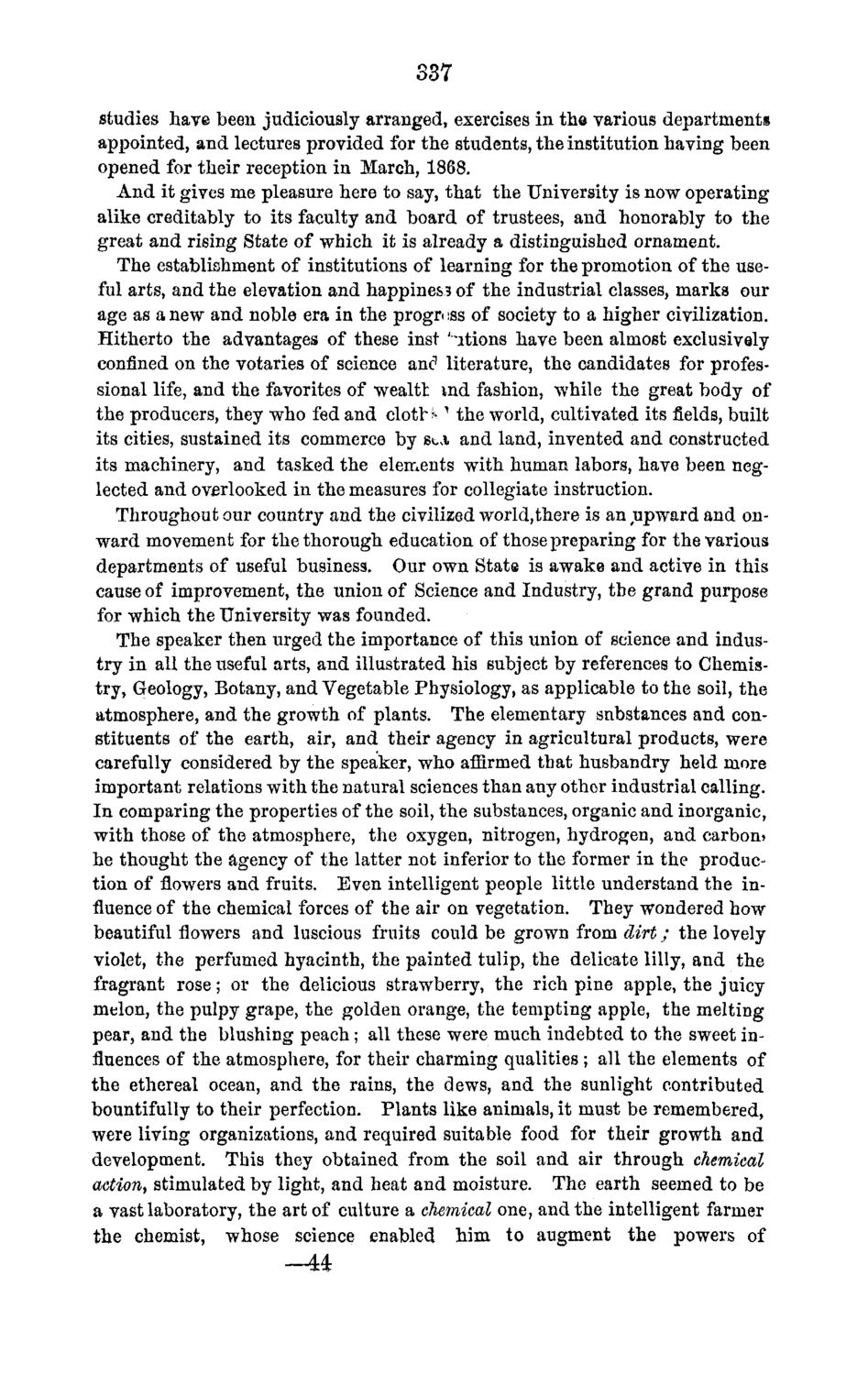| |
| |
Caption: Board of Trustees Minutes - 1870
This is a reduced-resolution page image for fast online browsing.

EXTRACTED TEXT FROM PAGE:
337 studies have been judiciously arranged, exercises in the various departments appointed, and lectures provided for the students, the institution having been opened for their reception in March, 1868. And it gives me pleasure here to say, that the University is now operating alike creditably to its faculty and board of trustees, and honorably to the great and rising State of which it is already a distinguished ornament. The establishment of institutions of learning for the promotion of the useful arts, and the elevation and happiness of the industrial classes, marks our age as a new and noble era in the progr< sss of society to a higher civilization. Hitherto the advantages of these inst ^ltions have been almost exclusively confined on the votaries of science and literature, the candidates for professional life, and the favorites of wealtt md fashion, while the great body of the producers, they who fed and clotH ^ the world, cultivated its fields, built its cities, sustained its commerce by sea and land, invented and constructed its machinery, and tasked the elements with human labors, have been neglected and overlooked in the measures for collegiate instruction. Throughout our country and the civilized world,there is an upward and onward movement for the thorough education of those preparing for the various departments of useful business. Our own State is awake and active in this cause of improvement, the union of Science and Industry, the grand purpose for which the University was founded. The speaker then urged the importance of this union of science and industry in all the useful arts, and illustrated his subject by references to Chemistry, Geology, Botany, and Vegetable Physiology, as applicable to the soil, the atmosphere, and the growth of plants. The elementary substances and constituents of the earth, air, and their agency in agricultural products, were carefully considered by the speaker, who affirmed that husbandry held more important relations with the natural sciences than any othor industrial calling. In comparing the properties of the soil, the substances, organic and inorganic, with those of the atmosphere, the oxygen, nitrogen, hydrogen, and carbon* he thought the agency of the latter not inferior to the former in the production of flowers and fruits. Even intelligent people little understand the influence of the chemical forces of the air on vegetation. They wondered how beautiful flowers and luscious fruits could be grown from dirt; the lovely violet, the perfumed hyacinth, the painted tulip, the delicate lilly, and the fragrant rose; or the delicious strawberry, the rich pine apple, the juicy melon, the pulpy grape, the golden orange, the tempting apple, the melting pear, and the blushing peach; all these were much indebted to the sweet influences of the atmosphere, for their charming qualities ; all the elements of the ethereal ocean, and the rains, the dews, and the sunlight contributed bountifully to their perfection. Plants like animals, it must be remembered, were living organizations, and required suitable food for their growth and development. This they obtained from the soil and air through chemical action^ stimulated by light, and heat and moisture. The earth seemed to be a vast laboratory, the art of culture a chemical one, and the intelligent farmer the chemist, whose science enabled him to augment the powers of —44
| |